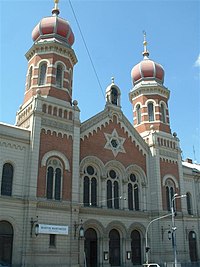
Religion in the European Union
Overview of religion in the European Union / From Wikipedia, the free encyclopedia
Dear Wikiwand AI, let's keep it short by simply answering these key questions:
Can you list the top facts and stats about Religion in the European Union?
Summarize this article for a 10 years old
Religion in the European Union is diverse. The largest religion in the EU is Christianity, which accounted for 72.8% of EU population as of 2018[update].[2] Smaller groups include those of Islam, Buddhism, Judaism, Hinduism, and some East Asian religions, most concentrated in Germany and France. Also present are revival movements of pre-Christianity European folk religions including Heathenism, Rodnovery, Romuva, and Druidry.[3]
Religion in the European Union (2021)[1]

.jpg/200px-Salute_2_(7257153200).jpg)
.jpg/200px-Lodz_katedra_(dron).jpg)

.jpg/200px-Cologne_Cathedral_(6679344321).jpg)




Over the last several decades, religious practice has been on the decline in a process of secularisation.[4] Eurostat's Eurobarometer survey in 2010 showed that 20% of EU citizens don't believe there is any sort of spirit, god, or life force.[5] Many countries have experienced falling church attendance and membership in recent years.[6]
The countries with the most people reporting no belief in any sort of spirit, god, or higher power are France (40%), Czech Republic (37%), Sweden (34%), Netherlands (30%), Estonia (29%), Germany (27%), Belgium (27%) and Slovenia (26%).[5] The most religious countries are Romania (1% non-believers) and Malta (2% non-believers).[5] Across the EU, belief is more common with older age and is higher amongst women, those with only basic education, and those "positioning themselves on the right of the political scale (57%)".[7]